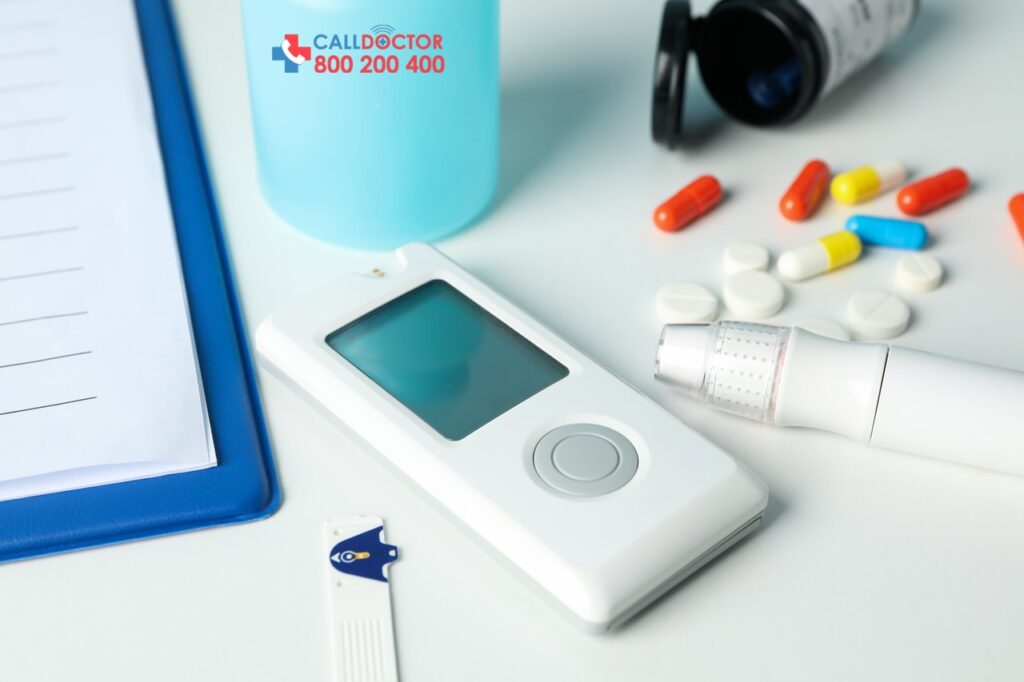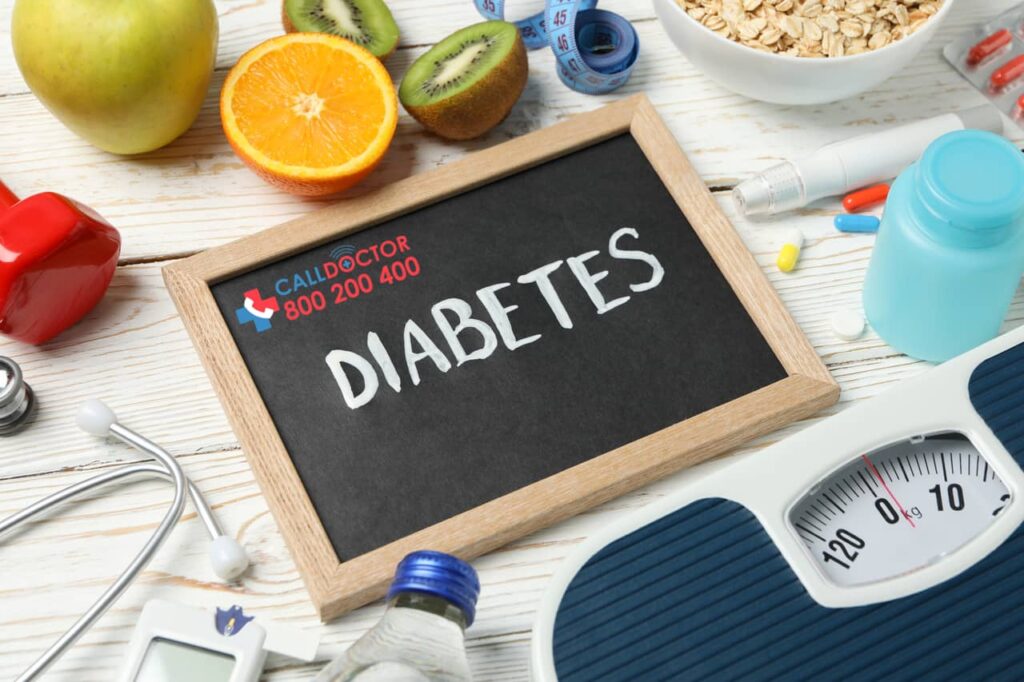Diabetes, its symptoms, causes, types, precautions, and treatment
Having an uncontrollable urge to eat sweets tends to cause anxiety because, believe it or not, many of them will make your health suffer. This bittersweet relationship of unbearable control sugar cravings only worsens and makes your life difficult by enhancing the risk of chronic diseases, such as diabetes.
Diabetes is a long-lasting health condition that means a person has high blood glucose. The reason could be inadequate insulin production or because the body’s cells are not efficient enough to respond correctly to insulin. Or in other words, when you eat, your body converts food into glucose, and insulin helps the body use the glucose for energy. So, when your blood sugar level goes up, it signals your pancreas to release insulin, a hormone made by the pancreas. Thus, for best diabetes care and control, it’s essential to keep the blood sugar level moderate.
When there is insufficient insulin in blood or cells, too much sugar stays in the blood and causes severe health problems. Some people can’t get rid of this condition, but some people can try to control it through a good healthy diet and healthy lifestyle. If diabetes is uncontrolled and treated poorly, it can cause severe consequences and damage many organs and tissues, such as the heart, kidney, eyes, and nervous system.

Types of diabetes
● Diabetes Type 1 (No insulin)
In type 1 diabetes, the immune system in our body destroys the insulin cells mistakenly; the immune system has a defensive mechanism and is vital to protect the body from different viruses and harmful bacteria. So, the body does not have enough cells to convert sugar into energy, which causes diabetes. This type of diabetes is a chronic condition known as insulin-dependent diabetes. There are many causes of diabetes type 1; however, genes also play a role in some patients, and sometimes any virus may trigger the immune system to attack the pancreas. In addition, environmental change and lifestyle play a vital role.
● Diabetes Type 2 (Insulin Resistance)
In type 2 diabetes, our body doesn’t respond to insulin appropriately, and it’s the most common and long-lasting disease. Moreover, middle-aged and older people get affected by it; the body’s cells don’t allow insulin to work, and body cells become resistant to it. Furthermore, the pancreas can’t keep up to work to make insulin, and due to this reason, glucose level goes high in your bloodstream, and the decreased level of insulin can’t accomplish the task of giving energy.
● Gestational diabetes
Gestational diabetes is the 3rd type of diabetes that can be caused by insulin-blocking hormones that are produced during pregnancy. Moreover, this type of diabetes only happens during pregnancy. It is often seen in people with preexisting prediabetes and a family history of diabetes. Furthermore, being overweight is connected to gestational diabetes, and females who have extra weight or are obese may already have insulin resistance during pregnancy.
Risk factors
Diabetes is considered a silent killer, and there can be many reasons for having it; some risk factors are mentioned below.
- Family history
- Physical illness or surgery
- Injury of pancreas infection, surgery, or tumor
- Overweight
- Being age 45 or over

Symptoms of Diabetes
- Increased thirst
- frequent urination
- Extreme hunger
- Tiredness and fatigue
- Blurred vision
- Numbness and tingling in feet or hand
- Slow-healing sores
- Unexplained weight loss
- frequent infections
- Skin infection /dry and itchy skin
- Dry mouth
Complications
For best diabetes care, if you don’t follow the diabetes healthcare plan, many complications can become part of your life. Moreover, high blood sugar or diabetes damages organs and tissues in your body. The higher your blood sugar goes, the more complications occur, and as long as you live with it, the greater your risk for complications. The following complications are associated with diabetes:
- Heart disease
- Heart attack
- Stroke or Neuropathy
- Nephropathy
- Retinopathy or vision loss
- Loss of Hearing sense
- Foot diseases such as infections and sores or cuts that don’t heal
- Skin conditions or disorders such as bacterial and fungal infections
- Deep depression and dementia

Tests for diabetes
1. Fasting glucose test
A glucose test for checking the blood sugar levels before eating in the morning
2. OGTT (oral glucose tolerance test)
Oral glucose test to check the level of sugar after drinking any beverage that contains glucose
3. HBA1C
The HbA1c test is a blood test to check the glucose level.
Treatments for Diabetes
Diabetes is a severe disease that you cannot treat independently, but you can follow up with a healthy diet plan and an excellent lifestyle to prevent it. Moreover, your doctor will help you make a diabetes treatment and diet plan that is right for you. Call Doctor provides the best diabetes care and high-quality services and treatment in the comfort of your home. Or, if you happen to need other health care professionals on your diabetes treatment team, including a foot doctor, nutritionist, eye doctor, and endocrinologist, put your worries aside because Call Doctor Team has it all covered. Eat healthy, live healthily!




